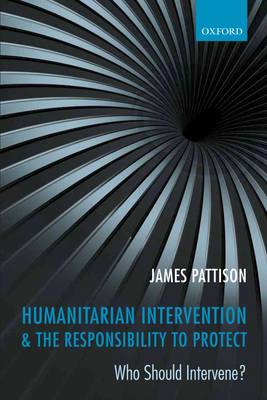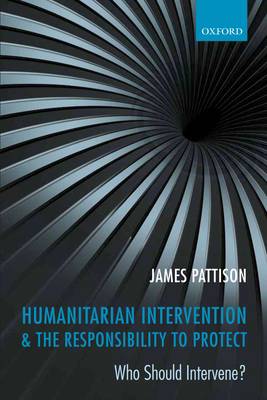
- Afhalen na 1 uur in een winkel met voorraad
- Gratis thuislevering in België vanaf € 30
- Ruim aanbod met 7 miljoen producten
- Afhalen na 1 uur in een winkel met voorraad
- Gratis thuislevering in België vanaf € 30
- Ruim aanbod met 7 miljoen producten
Zoeken
Humanitarian Intervention & the Responsibility to Protect
Who Should Intervene?
James Pattison
Paperback | Engels
€ 111,45
+ 222 punten
Omschrijving
Humanitarian Intervention and the Responsibility To Protect considers who should undertake humanitarian intervention in response to an ongoing or impending humanitarian crisis, such as found in Rwanda in early 1994, Kosovo in 1999, and Darfur more recently. The doctrine of the responsibility to protect asserts that when a state is failing to uphold its citizens' human rights, the international community has a responsibility to protect these citizens, including by undertaking humanitarian intervention. It is unclear, however, which particular agent should be tasked with this responsibility. Should we prefer intervention by the UN, NATO, a regional or subregional organization (such as the African Union), a state, a group of states, or someone else? This book answers this question by, first, determining which qualities of interveners are morally significant and, second, assessing the relative importance of these qualities. For instance, is it important that an intervener have a humanitarian motive? Should an intervener be welcomed by those it is trying to save? How important is it that an intervener will be effective and what does this mean in practice? The book then considers the more empirical question of whether (and to what extent) the current interveners actually possess these qualities, and therefore should intervene. For instance, how effective can we expect UN action to be in the future? Is NATO likely to use humanitarian means? Overall, it develops a particular normative conception of legitimacy for humanitarian intervention. It uses this conception of legitimacy to assess not only current interveners, but also the desirability of potential reforms to the mechanisms and agents of humanitarian intervention.
Specificaties
Betrokkenen
- Auteur(s):
- Uitgeverij:
Inhoud
- Aantal bladzijden:
- 304
- Taal:
- Engels
Eigenschappen
- Productcode (EAN):
- 9780199656622
- Verschijningsdatum:
- 8/11/2012
- Uitvoering:
- Paperback
- Formaat:
- Trade paperback (VS)
- Afmetingen:
- 155 mm x 231 mm
- Gewicht:
- 458 g

Alleen bij Standaard Boekhandel
+ 222 punten op je klantenkaart van Standaard Boekhandel
Beoordelingen
We publiceren alleen reviews die voldoen aan de voorwaarden voor reviews. Bekijk onze voorwaarden voor reviews.











